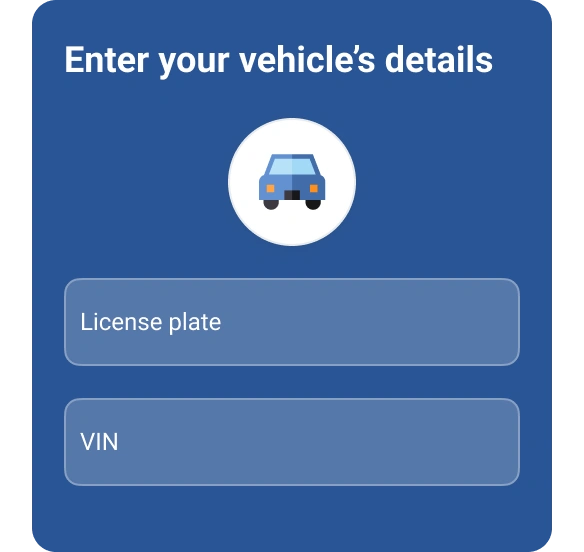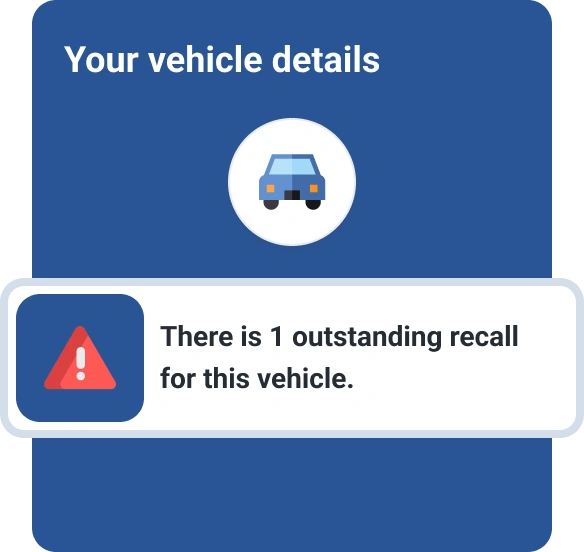Average Car Loan Interest Rates by Credit Score
Quick Answer
The average new car loan interest rate for a buyer with an excellent credit score was 5.18% in Q1 2025. That average was 15.81% for borrowers with poor credit scores. Learn how your credit score affects your auto loan interest rate.

Your credit score is a critical factor in determining your eligibility for an auto loan and your potential interest rate and other loan terms. The average car loan interest rate for new cars is 6.73%, while the average interest rate for used cars is 11.87%; your actual rate will vary based on your credit score and other factors.
On average, a new car buyer with an excellent credit score can secure an average interest rate of 5.18%, but that average jumps to 15.81% for borrowers with poor credit scores. For used car buyers, those averages range from 6.82% to 21.58%, depending on the borrower's credit history.
If you're thinking about buying a car in the near future, understanding the relationship between credit scores and interest rates can help you assess your options and determine the best way to move forward with your decision.
Compare now: Current Auto Loan Rates
Average Car Loan Interest Rates
According to Experian's State of the Automotive Finance Market report, the average interest rate for a new car loan was 6.73% in the first quarter (Q1) of 2025, and the average monthly payment on a new car was $745. In contrast, used car buyers are netting an average rate of 11.87% nearly double the new car average, with a monthly payment of $521.
While an auto loan's annual percentage rate (APR) is a product of multiple factors, your credit score is a significant one. Here's what the averages look like for different credit score ranges:
| Credit Score Range | New Car APR | New Car Monthly Payment | Used Car APR | Used Car Monthly Payment |
|---|---|---|---|---|
| Super prime (781 or above) | 5.18% | $727 | 6.82% | $523 |
| Prime (661 - 780) | 6.70% | $753 | 9.06% | $510 |
| Near prime (601 - 660) | 9.83% | $784 | 13.74% | $527 |
| Subprime (501 - 600) | 13.22% | $762 | 18.99% | $533 |
| Deep subprime (300 - 500) | 15.81% | $736 | 21.58% | $532 |
Source: Experian data as of Q1 2025; VantageScore® 4.0 used
Average Car Loan Rates Over Time
Car loan interest rates are near their highest point in the past four years. This is primarily due to the Federal Reserve raising its federal funds rate in an effort to combat high inflation. Here's a quick look at how interest rates have changed since 2021:
Average Auto Loan Rates by Quarter
What Affects Car Loan Interest Rates
There are several elements that lenders consider when determining the interest rates they offer to borrowers, some of which are in your control and some that aren't. Here's what you should keep in mind as you evaluate your options.
Economic Conditions
During periods of high inflation, the Federal Reserve may raise its federal funds rate (which banks use to lend to each other on an overnight basis) to help curb consumer borrowing and spending.
The federal funds rate directly influences the Wall Street Journal prime rate, which lenders use to help determine the rates they offer on certain types of consumer debt, including auto loans. So, when the federal funds rate is up, auto loan rates typically follow suit.
Once inflation becomes more manageable and the Fed cuts its interest rate, however, that move trickles down to lenders, which often lower their interest rates as well.
Learn more: How Does Inflation Affect Your Credit?
Lender Policies
Lenders also have their own criteria for determining which interest rates they offer to consumers based on business needs, financial forecasts and other factors. This is why you can get preapproved with multiple lenders and qualify for different interest rates from each.
Compare rates on a new auto loan
Find a good auto loan with today’s rates. Compare current rates and offers to find the best loan for you.
Creditworthiness
In addition to your credit score, lenders will also take a look at your credit history. If you have a history of missing payments or you have a bankruptcy or repossession on your credit report, it could make it difficult to score a low interest rate, even if your credit score is in decent shape.
In contrast, if your payment history is perfect, you'll have an easier time securing a lower rate.
Lenders will also consider other aspects of your creditworthiness, such as your annual income and debt-to-income ratio, or the percentage of your gross monthly income that goes toward debt payments.
Loan Terms
As a lender evaluates the risk of lending to you, it'll also consider the terms of the loan, including:
- Loan amount: The more you borrow, the riskier the loan is for the lender. At the same time, extremely low loan amounts may also come with higher interest rates.
- Repayment term: Shorter repayment terms typically command lower interest rates because there's less time for your financial situation to change in a way that makes it difficult to repay your loan.
- Down payment: The more money you put down, the less likely you are to stop making payments or end up with negative equity. As such, higher down payments usually translate to lower interest rates.
Vehicle
Lenders will also consider the value of the vehicle and its condition. As a rule, new cars typically qualify for lower interest rates because they're less likely to break down, which can affect their value.
As a car gets older and racks up more miles, you may expect higher interest rates. In fact, many lenders may not even finance a vehicle if it's older than 10 years or has more than 100,000 miles.
Learn more: How to Get the Best Car Loan
Interest Rates Are Just One Component of Your Car Loan
According to Experian data, new car loans in Q1 2025 have an average rate of 6.73%, while used car loans are averaging 11.87%. However, your interest rate isn't the only factor to consider as you research and compare your options. Here are some other elements to consider:
- Loan amount: The more you borrow, the more you'll ultimately pay, even with a low interest rate. Experian data shows that the average new car loan is $41,720, compared to $26,144 for used car loans.
- Repayment terms: You may qualify for a lower interest rate with a shorter repayment term, but your monthly payment will be higher because you have less time to repay what you owe. You can avoid putting too much strain on your budget by picking the shortest repayment term you can afford without sacrificing other important financial goals.
- Fees: Auto lenders typically don't charge application or origination fees, but they may charge a prepayment penalty if you pay off or refinance your loan too early. The fee is typically 2% of your loan amount. Also, check to see when the lender assesses a late fee and how much it may cost you.
Learn more: What's the Average Length of a Car Loan?
Before you take out an auto loan, consider how much you can afford to pay every month toward your loan. Use our car payment calculator to understand what you can expect to pay.
How to Get a Better Car Loan Rate
Although you can't control the market, there are steps you can take to get as low of an interest rate as possible on your next auto loan. Here are some potential options.
- Improve your credit. When you sign up for a free Experian account, you'll get free access to your Experian credit report and FICO® ScoreΘ. With this information, you can evaluate your overall credit health and identify areas where you can improve. The steps you take to improve your credit will depend on what you find in your credit file, but general guidelines include paying down credit card debt, catching up on past-due payments and limiting unnecessary credit applications. If you find inaccurate information on your credit report, you have the right to file a dispute with the credit bureaus.
- Shop around. Getting preapproved with multiple auto lenders can help you compare interest rates and other terms side by side. In some cases, you may even be able to use a competing offer to negotiate a better deal with your preferred lender.
- Opt for a shorter loan term. As previously mentioned, choosing a shorter loan term can help you qualify for a lower interest rate and also minimize your total interest costs. Just make sure you can comfortably afford the monthly payment.
- Put more money down. When you put money down, you're telling the lender that you have skin in the game, so to speak. The bigger your down payment, the less you'll need to borrow, which can result in a lower interest rate, reduced monthly payment and lower total costs.
- Apply with a cosigner. If your credit score needs some work but you don't have time to improve it, you may consider applying with a creditworthy cosigner. The lender will consider both applicants to make a decision, and your loved one's financial and credit profile could help you secure better loan terms. Before you pursue this option, though, make sure the cosigner understands their responsibilities and the potential impact on their credit score.
The Bottom Line
Your credit score is crucial in determining the interest rate you qualify for on an auto loan, but it's not the only factor that lenders consider.
Before you start shopping for your next vehicle, take some time to evaluate your financial situation and credit health to determine whether you're ready or if you should take some time to improve your credit and make a better impression on lenders.
Throughout the process and even after you get approved, it's a good idea to continue to monitor your credit regularly. With Experian's free credit monitoring service, you'll get access to your FICO® Score and Experian credit report, along with real-time alerts when changes are made to your report.
What makes a good credit score?
Learn what it takes to achieve a good credit score. Review your FICO® Score for free and see what’s helping and hurting your score.
Get your FICO® ScoreNo credit card required
About the author
Ben Luthi has worked in financial planning, banking and auto finance, and writes about all aspects of money. His work has appeared in Time, Success, USA Today, Credit Karma, NerdWallet, Wirecutter and more.
Read more from Ben

